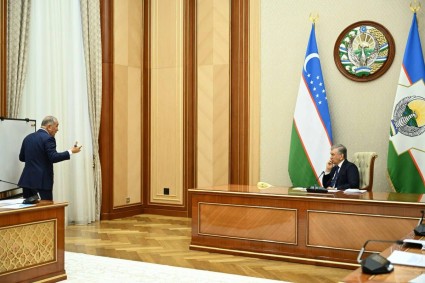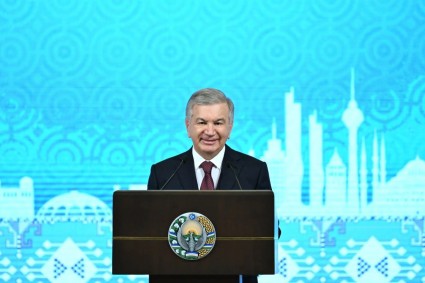Japanese Foreign Minister Yoshimasa Hayashi visited Tashkent on April 29. At the Tashkent airport he was welcomed by the interim Foreign Minister of Uzbekistan Vladimir Norov, the Uzbek Foreign Ministry said.
During the meeting of the two counterparts, the parties discussed the ties in various areas, touched upon the current situation in Afghanistan and pointed to the need to continue providing humanitarian assistance to the Afghan people.
At the meeting with Deputy PM/Minister of Investment and Foreign Trade Sardor Umurzakov, Yoshimasa Hayashi said that Japan was ready to support Uzbekistan in the implementation of new projects for the development of horticulture, livestock and the introduction of water-saving technologies in rural areas. Japanese companies are also planned to be involved in cooperation in the field of healthcare.
In addition, the parties discussed the reduction of carbon emissions into the atmosphere and the introduction of "green" technologies.
In addition, it is planned to expand the list of Japanese universities participating in the JDS grant program (“Scholarship Program for Human Resource Development”), as well as increase the quotas for participation in this program for Uzbek students.
The Japanese Foreign Minister was also hosted by President Shavkat Mirziyoyev. It was noted at the meeting that the portfolio of joint programs with funding from Japanese development and cooperation institutions exceeded $7 billion.
The head of state offered an invitation to Japanese Prime Minister Fumio Kishida to pay an official visit to Uzbekistan, and also discussed the economic recovery of Afghanistan.
The Uzbek authorities are expecting an increase in the number of labourers from Uzbekistan under the Specific Skills visa, the widespread use of the so-called “Joint Credit Mechanism” (JCM), aimed at supporting low-carbon projects in developing countries through Japanese investment (reducing emissions in third countries can be taken into account when emissions calculation in Japan itself).
In addition, Uzbekistan plans to counteract the effects of climate change using Japanese satellites.
Yoshimasa Hayashi also announced a loan of up to $200 million to Uzbekistan for a project to develop the value chain in the horticulture sector (phase-2).
The Japanese Foreign Minister also said that Japan would like to work with Uzbekistan on the situation in Afghanistan to quickly resume girls' education and create an inclusive political system.
According to him, Japan supports Afghanistan and neighboring countries of Central Asia in strengthening border controls and preventing the influx of radicalism, and the country also supports the construction of power plants in Uzbekistan.
Sardor Umurzakov noted that the security of Afghanistan is extremely important for Central Asia, including Uzbekistan, and expressed satisfaction that the two countries "were able to make a significant contribution to Afghanistan's energy supply and cooperate in regional stabilization." We are talking about the construction by Japan of a power plant in Uzbekistan.
Yoshimasa Hayashi explained Japan's position on Russia's recent invasion of Ukraine and emphasized that the international community must work together to deal with this conflict. In response, Sardor Umurzakov explained the position of Uzbekistan, according to which "all conflicts must be resolved peacefully in accordance with international law." Both sides confirmed that they would continue close cooperation at various levels on international issues, including Ukraine and Afghanistan.
The parties also discussed the situation in East Asia. Hayashi and Umurzakov agreed to continue to cooperate in resolving the situation in North Korea, including issues of nuclear weapons, missile launches and the problem of kidnapping.
Sardor Umruzakov also told the Japanese Foreign Minister about transport projects between Central and South Asia promoted by Uzbekistan.















